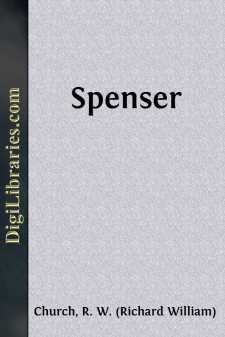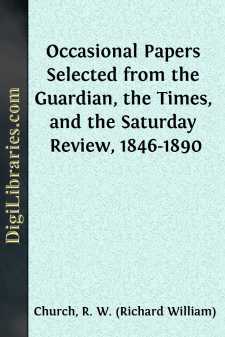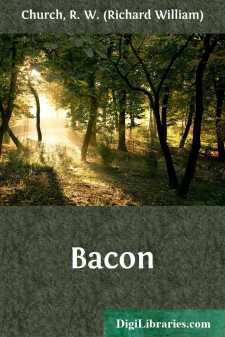Categories
- Antiques & Collectibles 13
- Architecture 36
- Art 48
- Bibles 22
- Biography & Autobiography 813
- Body, Mind & Spirit 142
- Business & Economics 28
- Children's Books 15
- Children's Fiction 12
- Computers 4
- Cooking 94
- Crafts & Hobbies 4
- Drama 346
- Education 46
- Family & Relationships 57
- Fiction 11828
- Games 19
- Gardening 17
- Health & Fitness 34
- History 1377
- House & Home 1
- Humor 147
- Juvenile Fiction 1873
- Juvenile Nonfiction 202
- Language Arts & Disciplines 88
- Law 16
- Literary Collections 686
- Literary Criticism 179
- Mathematics 13
- Medical 41
- Music 40
- Nature 179
- Non-Classifiable 1768
- Performing Arts 7
- Periodicals 1453
- Philosophy 64
- Photography 2
- Poetry 896
- Political Science 203
- Psychology 42
- Reference 154
- Religion 513
- Science 126
- Self-Help 84
- Social Science 81
- Sports & Recreation 34
- Study Aids 3
- Technology & Engineering 59
- Transportation 23
- Travel 463
- True Crime 29
Spenser
Description:
Excerpt
CHAPTER I.
SPENSER'S EARLY LIFE.
[1552-1579.]
Spenser marks a beginning in English literature. He is the first Englishman who, in that great division of our history which dates from the Reformation, attempted and achieved a poetical work of the highest order. Born about the same time as Hooker (1552-1554), in the middle of that eventful century which began with Henry VIII., and ended with Elizabeth, he was the earliest of our great modern writers in poetry, as Hooker was the earliest of our great modern writers in prose. In that reviving English literature, which, after Chaucer's wonderful promise, had been arrested in its progress, first by the Wars of the Roses, and then by the religious troubles of the Reformation, these two were the writers who first realized to Englishmen the ideas of a high literary perfection. These ideas vaguely filled many minds; but no one had yet shown the genius and the strength to grasp and exhibit them in a way to challenge comparison with what had been accomplished by the poetry and prose of Greece, Rome, and Italy. There had been poets in England since Chaucer, and prose writers since Wycliffe had translated the Bible. Surrey and Wyatt have deserved to live, while a crowd of poets, as ambitious as they, and not incapable of occasional force and sweetness, have been forgotten. Sir Thomas More, Roger Ascham, Tyndale, the translator of the New Testament, Bishop Latimer, the writers of many state documents, and the framers, either by translation or composition, of the offices of the English Prayer Book, showed that they understood the power of the English language over many of the subtleties and difficulties of thought, and were alive to the music of its cadences. Some of these works, consecrated by the highest of all possible associations, have remained, permanent monuments and standards of the most majestic and most affecting English speech. But the verse of Surrey, Wyatt, and Sackville, and the prose of More and Ascham were but noble and promising efforts. Perhaps the language was not ripe for their success; perhaps the craftsmen's strength and experience were not equal to the novelty of their attempt. But no one can compare the English styles of the first half of the sixteenth century with the contemporary styles of Italy, with Ariosto, Machiavelli, Guicciardini, without feeling the immense gap in point of culture, practice, and skill—the immense distance at which the Italians were ahead, in the finish and reach of their instruments, in their power to handle them, in command over their resources, and facility and ease in using them. The Italians were more than a century older; the English could not yet, like the Italians, say what they would; the strength of English was, doubtless, there in germ, but it had still to reach its full growth and development. Even the French prose of Rabelais and Montaigne was more mature. But in Spenser, as in Hooker, all these tentative essays of vigorous but unpractised minds have led up to great and lasting works....




